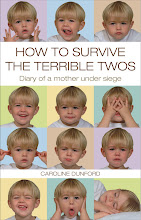I've just finished my stint for this year at the Edinburgh International Book Festival. I was speaking about creativity, rejection, writing groups, and blogging. As usual I met some wonderful people, both published, unpublished and those who have no desire to be published. And as usual it's left me thinking about how those of us in, and wanting to join, this absurd way of earning a living deal with the many facetted aspects of writing.
Yesterday I ran my workshop on Dealing with Rejection. This is the third time I've run it there. It always sells out and I'm taking it as a good sign that I don't see the same faces year in and year out.
I was fortunate to have a great mix of attendees, who had clearly been thinking about dealing with rejection. A couple had yet to send their completed manuscripts off, preferring to research rejection beforehand. This might strike some as being overly pessimistic, but in reality it is one of the steps in becoming a professional writer.
Rejection is information - if you know how to read it. It's certainly a side-effect of writing, but it's one we can all learn from. Targeting, presentation, timeliness and manners help limit it, but everyone will be rejected at some stage in their career. It's all about how you use that rejection. For example, do not as one editor told me happened to her, send your spouse down to the publisher's office to make them see sense!
Rejection has a huge emotional impact that authors must not under rate. It is not something to be skipped over. It has to be approached with a clear understanding of how to cope emotionally, interpret criticism and how to move forward - and even on occasion when to gracefully retire a project in favor of something new.
Everything stems from keeping the fires of our creativity alive. The other workshop I ran this year was on doing just this. Unlike Dealing with Rejection, this one was composed solely of women,which makes me wonder why. Do women feel a particular connection with creativity? Is it not a word or term or idea that men do not connect with so easily? Is it seen as feminine? I found it really interesting I had many men, who were prepared to face the issue of rejection, but seemingly not of inspiring creativity. But then it's dangerous to ascribe gender issues to what may be more to do with who got through on the phone to the box office first.
I found my creativity aspirants to be extremely interested, willing and active participants. We ran through a series of exercises from facing that blank page, to engaging all the senses, evoking emotion, how to use your life as fuel for your creativity to tapping into the unconscious mind.
What I love about workshops is not merely seeing happy faces at the end, but getting the energy going during the talk and seeing hope and encouragement blossom in attendees. Writing is a terrible business. It is so difficult to get published. (Don't let anyone tell you otherwise). You need a degree of talent (not as much as you might suppose!), luck, a willingness to jump at opportunity, the ability to listen and use criticism and above all persistency. Quite frankly, at the end of the day you need to be a little mad. Writing has to be a compulsion rather than a hobby - but it needs to be a compulsion you learn to control and direct.
Festivals, workshops, writing groups all are wonderful opportunities for us scribblers to mix with our own kind and whether we're leading or attending a workshop it's a guarantee that all of us with learn from each other.






No comments:
Post a Comment